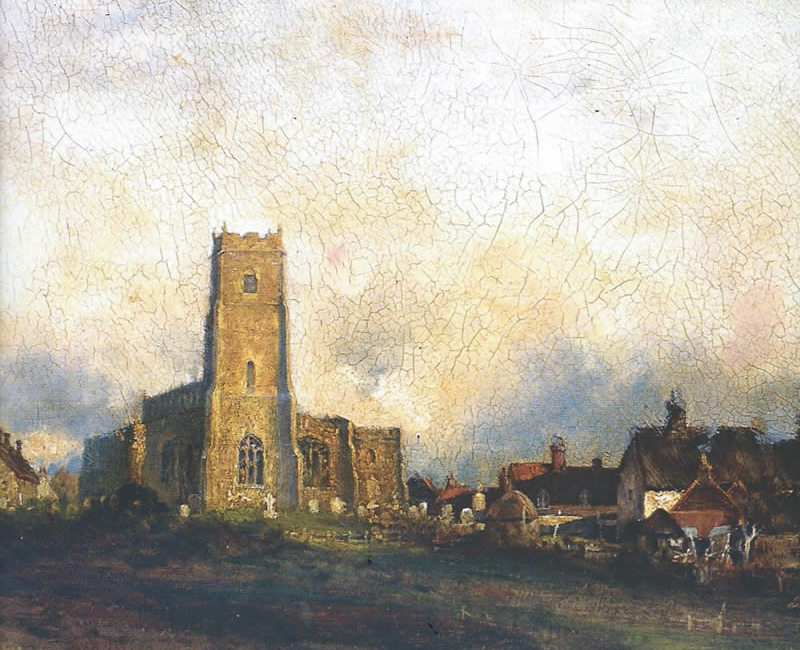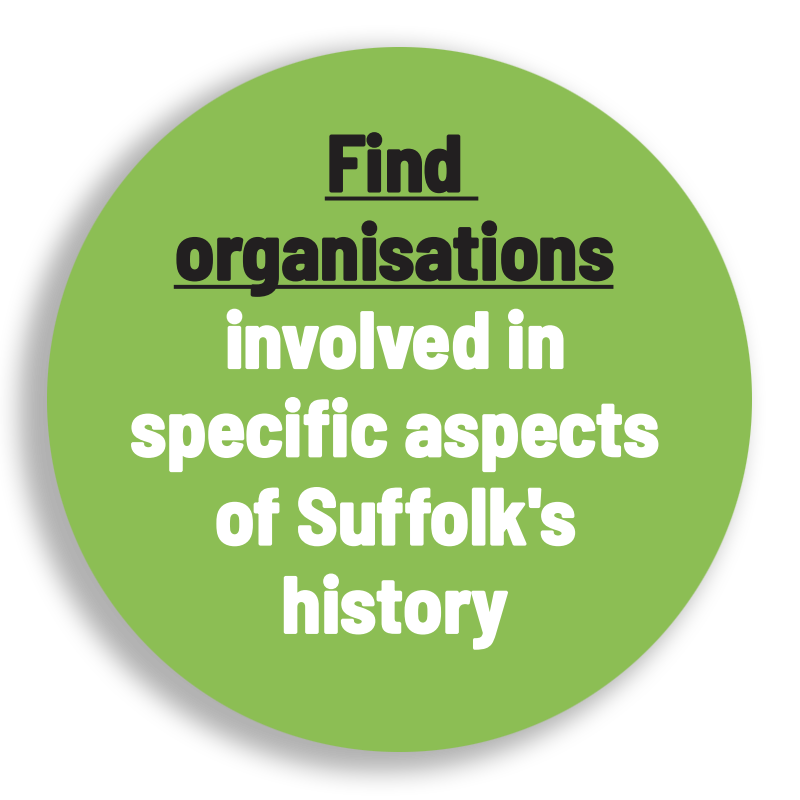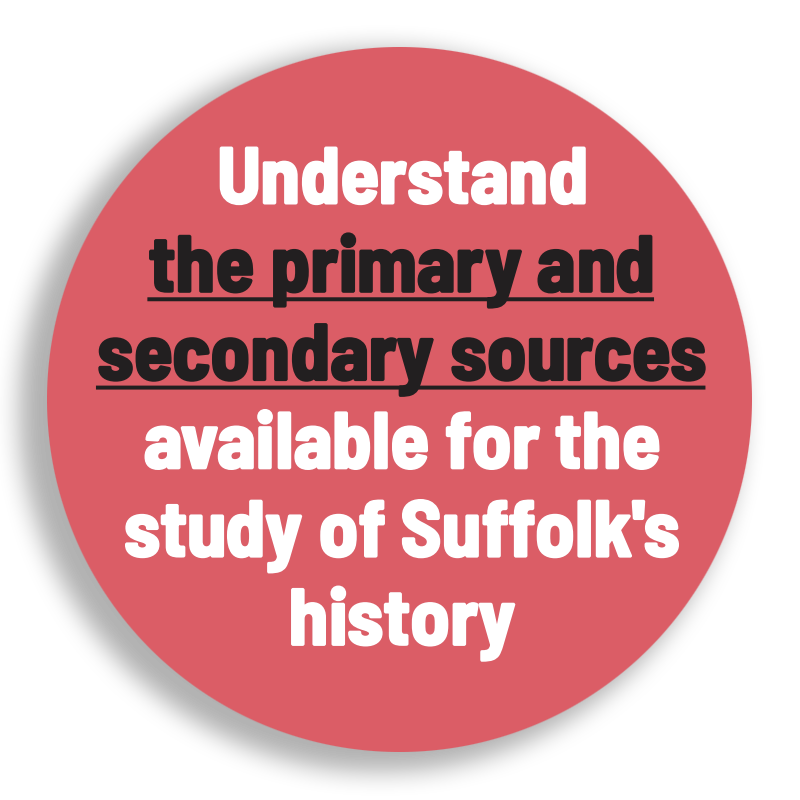Understand the primary and secondary sources
available for the study of Suffolk’s history
Primary sources
Primary sources provide ground-level, direct, first-hand information or original data about an event, a topic, a person, an object or a time period. They can be written (e.g. a census, a will, a farm account) or non-written (e.g. pictures, coins, recordings).
The National Archives (TNA) and Suffolk Archives (SA, see Blue link) are the main repositories for primary sources relating to Suffolk’s history, and their extensive catalogues list what is available and where the sources are kept. Anyone can visit these archives, and staff are welcoming and helpful, although an appointment or reader’s ticket may be required.
Small, but locally important, collections of other primary sources relating to Suffolk are also deposited in other county record offices, in university colleges and libraries, and in private collections. The catalogues of material, and access to it, may be more limited than at TNA and SA.
Secondary sources
Secondary sources use primary sources to reconstruct and explain past events. They involve the analysis, summary, synthesis, interpretation, and evaluation of primary sources (e.g. a village history, an academic article, an undergraduate thesis).
There is no up-to-date and comprehensive list of books and articles on Suffolk history and archaeology. For older secondary sources, the Suffolk Records Society in 1979 published A Suffolk Bibliography, by A. V. Steward, arranged by both place and topic.
Suffolk Archives have copies of many secondary sources on Suffolk’s history openly available on their shelves in the Search Rooms in the Bury and Lowestoft Branches and in the John Blatchly Local Studies Library at The Hold, and others can be obtained through main libraries. See the Suffolk Libraries catalogue for books and other local studies materials held in Suffolk Archives branches and in the county’s libraries https://www.suffolklibraries.co.uk/services/our-catalogue
In addition, many of the organisations listed on the Green page are constructing their own collections of (mainly unpublished) sources for sharing online with anyone interested in the specific subject. These include translations and transcriptions of primary sources, and unpublished secondary works (such as university theses), donated by local historians.






